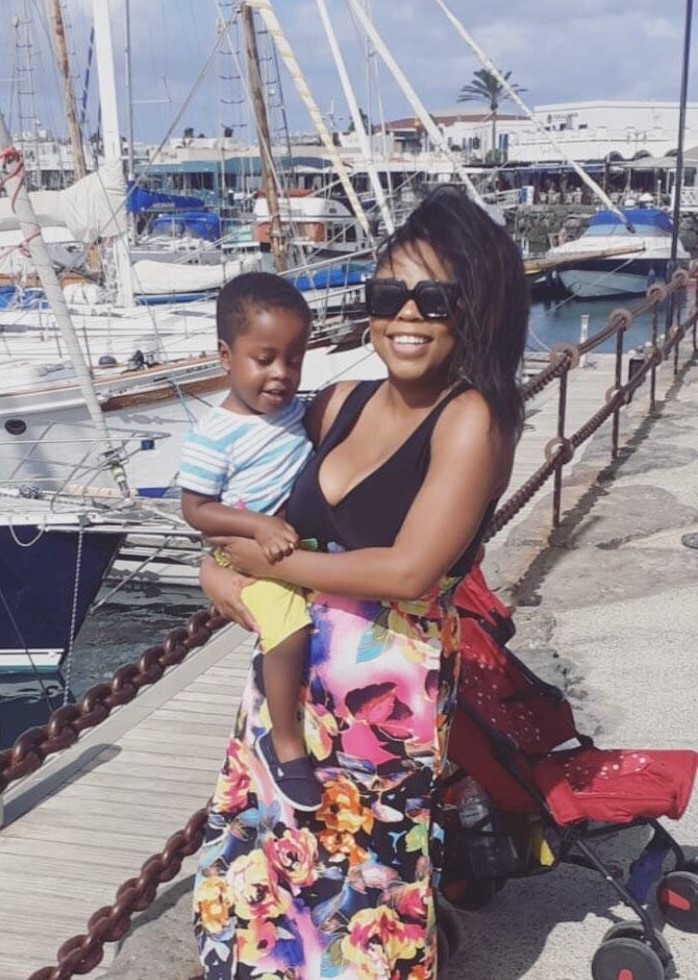
Happy Mother’s Day to you all across the pond in the UK!
My most recent post shared a conversation I had with a group of mums (both in the UK and US) about their pregnant and postpartum hair experiences. It was so amazing to hear what the women had to say and if you missed it, read it here.
In this global village, we have access to information at the tip of our fingers. However, some might feel a need for increased accessibility to information, especially for black women and by black women.
In part 2 of the conversation I ask the women about some of their thoughts around information sharing and they give us some of their own advice for managing kinky, coily, curly hair post pregnancy.
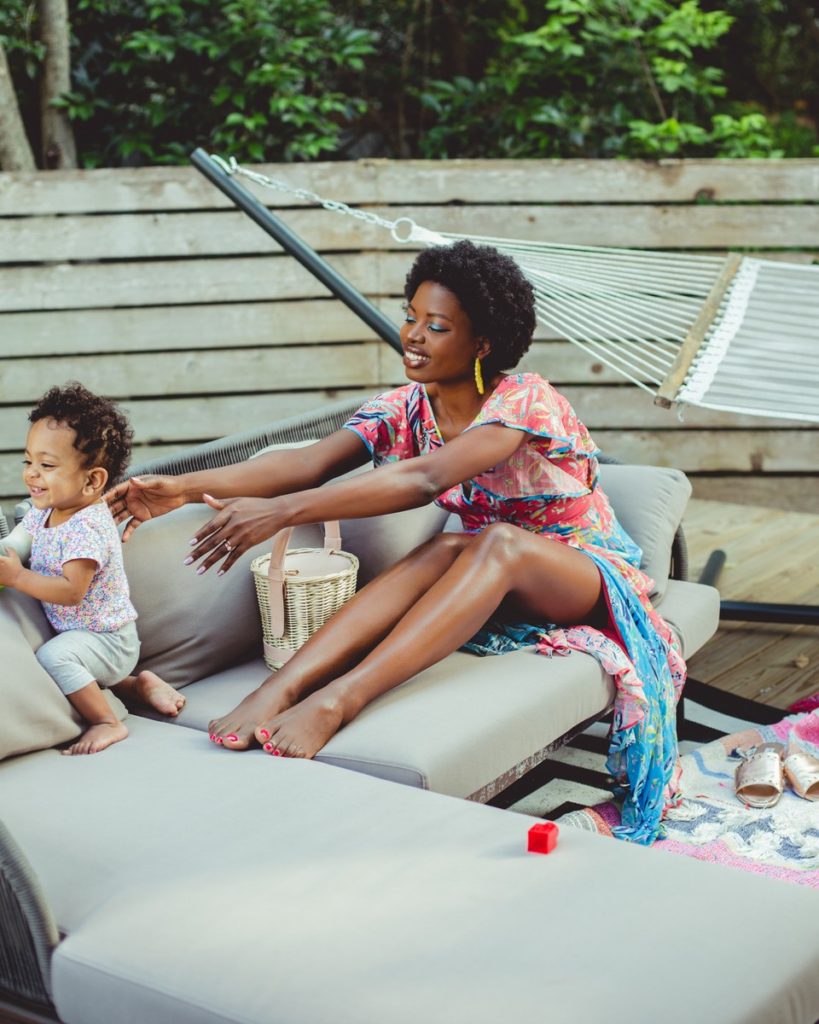
Me: “What information did you have about changes that may happen to your hair during pregnancy? Were any from other black women?”
Ceri (30, Mum to a 1 year old): “I used to get weekly emails from a company here in the UK who would tell me what to expect at different stages of my pregnancy. Normally, they’d give me an update on the baby’s approximate size based on the stage of pregnancy I was at (e.g. “by now, your baby is roughly the size of a cantaloupe”), but they’d also explain some of the changes that I might have noticed in my own body. I do remember there being one email about hair and the fact that we might notice it was looking better, but I don’t remember them going into much detail as to why. Plus, that particular publication isn’t targeted specifically at black women anyway. I was only made aware of potential changes when Uche (also being interviewed), came to my house to install some faux locs for me when my daughter was about six weeks old, and cheerily informed me that my hair was “going to fall out anyway”. Being that Uche is a woman of God, I was very surprised that she would speak something so unpleasant over me, and so matter of factly, but when I took the faux locs out several weeks later, I understood what she meant!”
Paola (33, Mum to a 2 year old): “I didn’t have any hair information. Growing up with 4c hair in the nineties through early two-thousands was the same. We’re taught to manipulate it so it loses its natural texture to belong. We have to grow and learn how to take care of it ourselves.”
Daisy (31, Mum to a 3 year old): “YouTube was my greatest advice. I already had really bad hair, stopped relaxing it and it seemed to get worse especially in the last month of pregnancy. I had major hair loss, I now had a lot of patches at the front, middle and the back was even worse than before. So one day I decided to go on YouTube I found numerous videos that made me realise I was not alone and this had happened to others. This was a relief, but very upsetting.”
Uche (29, Mum to a 1 year old): “I had a lot of information because I studied trichology so I knew what was going to happen. I only heard stories from black women after I lost my hair and shared my experience.”
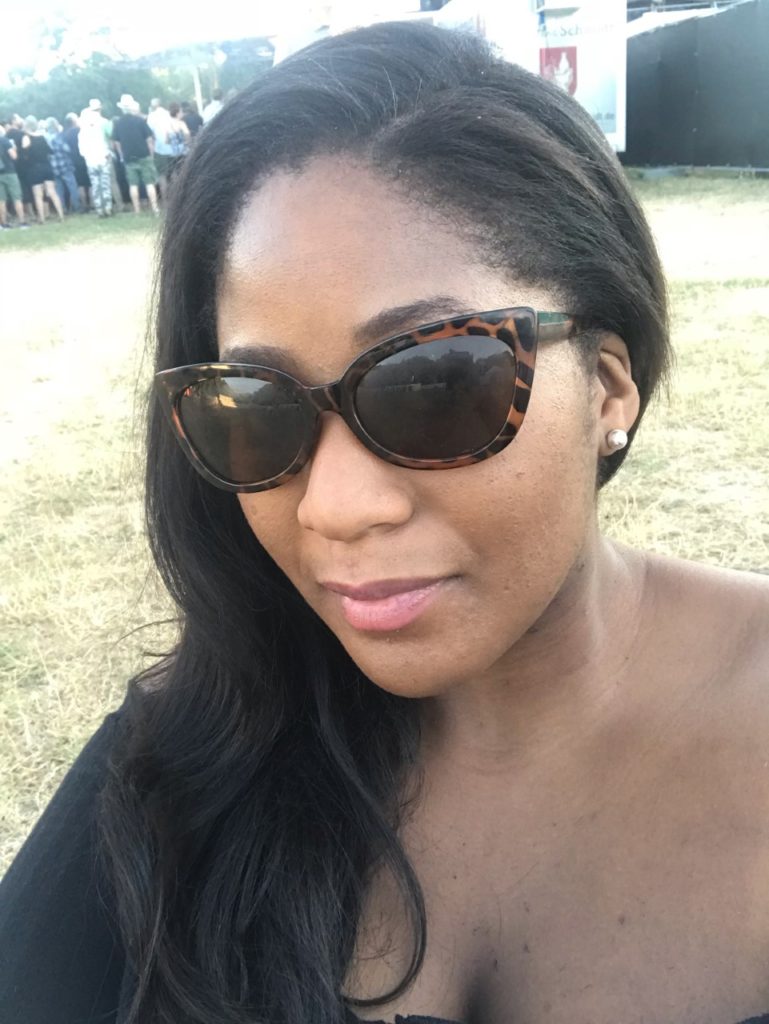
Me: “Do you think information from/by black women about hair and motherhood is important? Why?”
Uche: “Information is important because as with everything knowledge is power and preparation. I knew I needed to buy nappies, clothes, bottles but I didn’t know I would be doing a big chop, or buying wig caps, hair, closures and mannequin heads.”
Daisy: “Absolutely, when I gave birth I was the first of my friends to have a baby, my sisters had older kids so forgot somethings. I had to learn a lot by myself, my mother in law was very helpful as she taught me how to clean the baby, feed and massage the baby daily. It was valuable information that I am grateful for forever. Information from black women about hair is so important. When I was young I wish I had the information we have now, I am also very happy that we have YouTube and we can learn so much from different black women about hair care, different hair types like 4C, 3B etc and how to manage and maintain these type of hair.”
Claudia: “It is important because there is not enough from a reliable source of information. I believe now more people are putting it out there but it should be given as part of a baby pack from the NHS because care for the mum is as important as care for the child.”
Ceri: “I think it would be good to have some more information upfront, just so people don’t feel too shocked or alarmed if they do experience post-partum shedding. I guess it’s also important because of the amount of pressure that there is in Western society on women to be seen to “bounce back” really quickly after giving birth. Having more transparency about some of the changes might help to alleviate some of those pressures.”
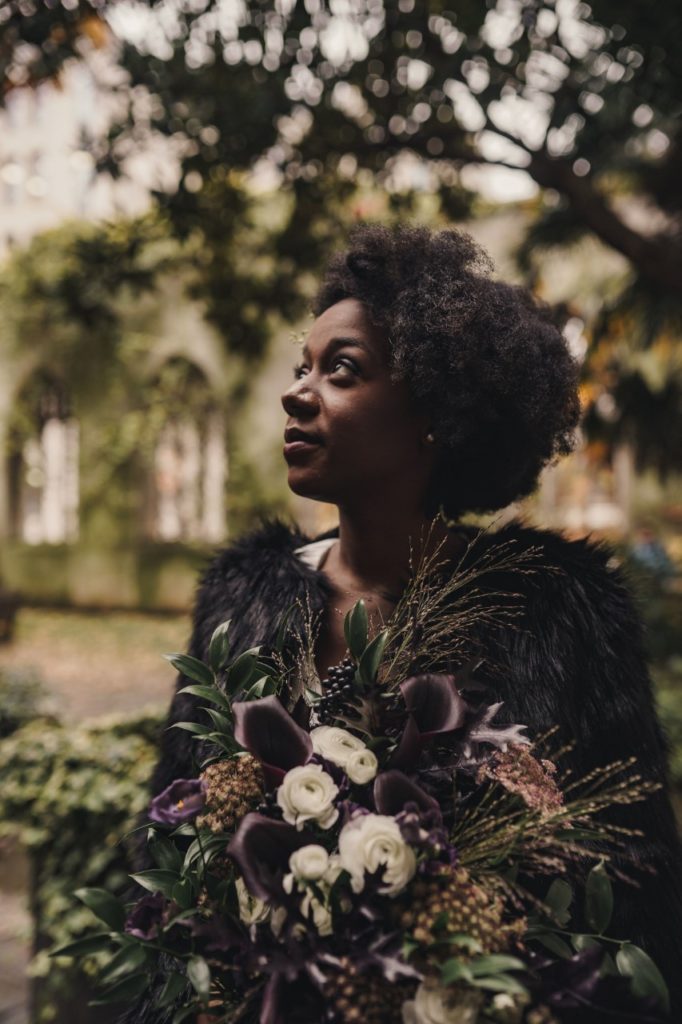
Me: “Is there a need for the black community to signpost and share information better, making it accessible to women?”
Daisy: “Yes, I believe sharing is caring, we have to learn from each other because for so long mainstream media, either didn’t show afro hair in its truest form or had negative connotations towards black hair…representation matters!! We need to share information on all levels of communication, orally by telling your daughters and sons about their hair, hair type and history of their hair therefore creating hair pride. Social media, by connecting with other black women and sharing great hairstyles, and educating each other on maintaining healthy hair. Print and Mainstream media. For our sisters who work in these industries it would be amazing to have them write in magazines, produce films, and write music to the mass audience about black hair in order to change and challenge the beauty standards in mainstream media and society.”
Claudia: “I believe we have more information in 2020. So I believe it is better now because of the internet but so many women say they did not know so I guess it is not public knowledge for black women or they believe it doesn’t apply to them. So I guess representation for black women matters more.”
Uche: “I think information is out there but as a people we automatically reach for the wig because we know we can, so we may not need to seek information past discussions with family and friends. I can only imagine that white women do not do this- they go to the doctor and they get help. They do a blood test. They get armed with knowledge and referred to specialists. It would be great to see more Scientific but easy to digest YouTube videos.
More books available from people like Charlotte Mensah who is one of the leading voices in the black hair industry. Also we need more QUALIFIED and knowledgeable black hairdressers. We need to develop a culture where clients have relationships with them like you do your doctor or OBGYN. We also need to see hairdressing as an actual profession in the black community and stop putting it down (personal experience).This may or may not apply to the people in the US but certainly in the UK. Overall i think there is a shift. Black women are talking, sharing experiences and getting serious about their hair care.”
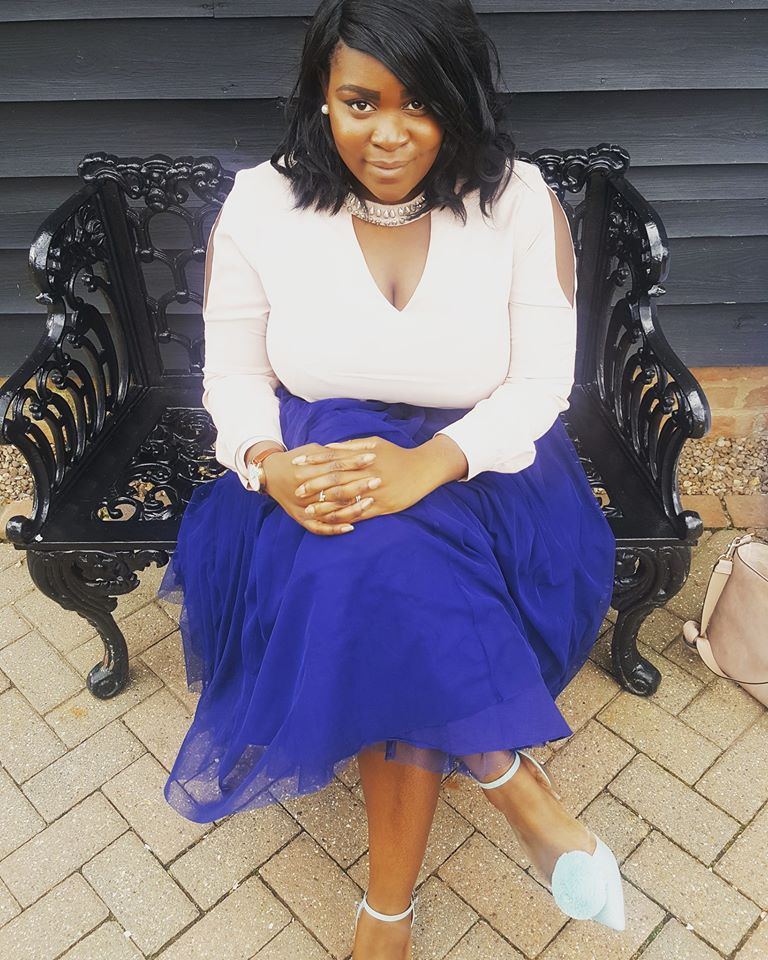
Me: “What information/advice would you give to a fellow black woman about hair during and post pregnancy”
Claudia: “Use shea butter, water is your friend. Use the LOC method, take your time with your hair and be patient because it will grow back.”
Daisy: “I would say at the beginning of your first trimester establish a hair routine and an easy protective style that will enable you to go about your pregnancy without doing too much. Also know your hair may change a lot during and after pregnancy you will lose hair after pregnancy but your hair will recover.”
Uche: “You may or may not lose your hair during/after the process specifically after three months. I would encourage them to read about it so they are prepared but it is quite scientific so very boring. Maybe YouTube videos could help. Ultimately though I world advice that it’s just hair and it will grow back (if you don’t have underlying health issues).”
Ceri: “I think even apart from being prepared for potential shedding, the main thing is just to remember to make time to look after your hair. I actually had my hair out natural when I gave birth, as I didn’t want to have any kind of extensions in during delivery, but then found it difficult in the intervening weeks to make time to wash my hair. At the start of this year, a friend from my church paid for someone to do braids for me, and it was like giving me a new lease of life. I didn’t realise how much I’d been neglecting my self-care until someone else helped me make sure that I got it. If my friend hadn’t paid for my hair to be done, I probably would have ended up with another wig, or trying to do the hair myself which would have been more tiring and probably wouldn’t have looked as good, simply because I would have felt bad about spending that type of money just on myself. Having had my hair done, and realising what it did for how I feel about myself, I’m now much more inclined to continue investing in my self-care, and would encourage other Mums to be do the same within the bounds of whatever is reasonable for their means and circumstance.
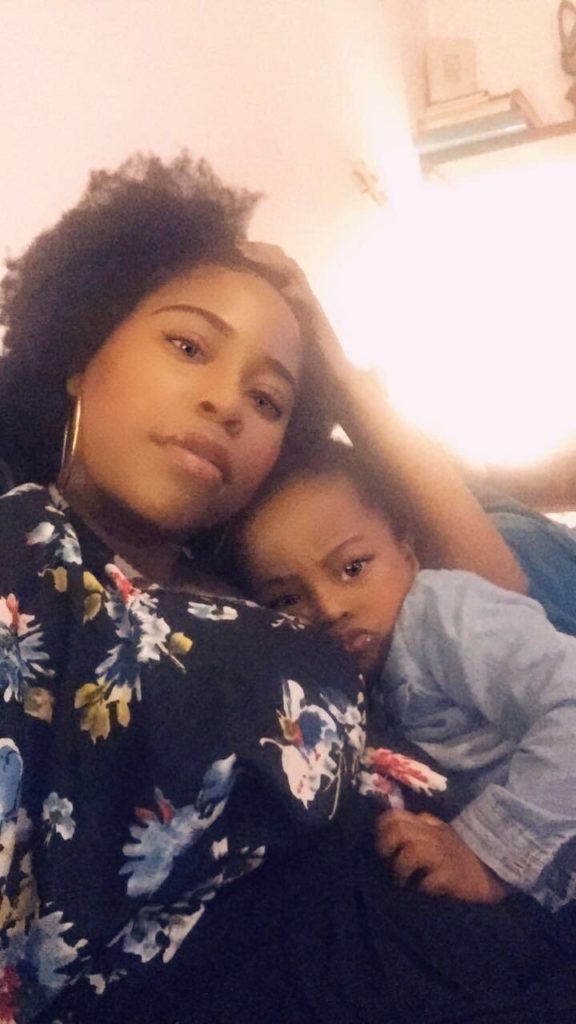
Me: “What were some of your go-to styles when pregnant?”
Paola: “While I was pregnant I kept my hair was very short or headwraps”
Uche: “During pregnancy I always had simple weave with leave out which was great because it was so easy to manage.”
Daisy: “I discovered my love for wigs and also braids was my favourite I learnt how to braid my own hair during pregnancy.”
I am so grateful for these women and their willingness to share their hair experiences and great advice on resources to get through the changes in their motherhood journey.
Some of the women enjoyed luscious, thick and even shiny hair during pregnancy. This is likely due to the increased estrogen and changes that happen in the body to care for the baby – keeping strands intact that would usually shed. Once hormones start to balance out that is when we see more strands coming out.
There is hope! Shedding and hair loss is temporary. Looking after yourself and ensuring as best as possible to have a healthy hair regimen will help. Some have even suggested continuing to take prenatal vitamins after delivery may be beneficial. Of course, if there are further issues, talk to a specialist that will be able to look at your case closer. Being a new mum and having to manage these changes can be difficult but If you have a support system this is a necessary time to solicit their help. Aim to keep manipulation to a minimum and limit protective styles like braids being in for too long.
Stay blessed
1 Peter 1:3 Praise be to the God and Father of our Lord Jesus Christ! In his great mercy he has given us new birth into a living hope through the resurrection of Jesus Christ from the dead,
